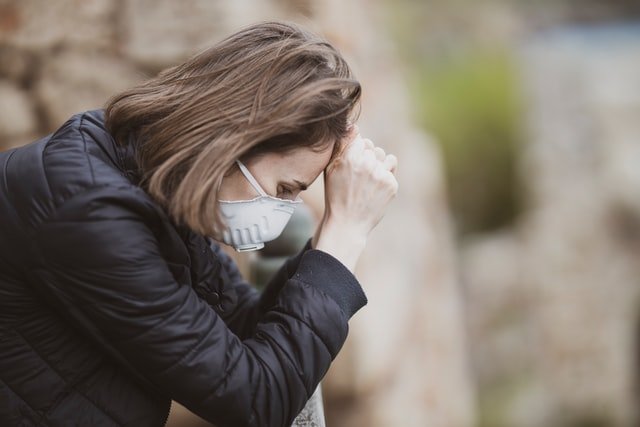Health is a condition of physical, mental, behavioral, and social wellness. You are prone to certain lifestyle disorders with a fast-paced lifestyle and a lack of proper rest. Also, a poor lifestyle triggers specific pathways that disturb your body’s regular release of essential hormones. The human endocrine system regulates the production and release of certain hormones that promote vital functions. In case of stress or lifestyle issues, you may experience hormone imbalances. Here are the clinical features and signs that males often experience after hormonal disturbances and derangements.

What Is Hormonal Imbalance?
Endocrine glands are the major organs that facilitate the release of hormones in the human body. Due to specific reasons, your endocrine functions may get disturbed and lead to increased or decreased hormone synthesis. In both cases, men suffer from various signs and symptoms of the hormone and its functions.
Most hormones regulate appetite, sexual development, heart rate, sleep cycle, and many other aspects. Hence, hormonal derangements contribute to many stress and other symptoms in men. Long-term hormonal disturbances can lead to an array of symptoms that take the form of the syndrome in the long run.
Causes Of Hormonal Imbalance
When it comes to the reason behind hormonal imbalance, there are plenty of causes. While the cause depends upon the damaged endocrine gland, the symptoms may belong to diverse systems. Most males undergo hormonal imbalances associated with testosterone, thyroid, and adrenal hormone levels. Further, it produces different signs and symptoms related to deficient or excess hormones. In case of sex hormone imbalance, you may experience hypo or hypersexuality. Some common hormonal imbalances in men are adrenal, thyroid, and reproductive glands.

Signs & Symptoms Of Hormonal Imbalance
If you’re wondering about the clinical manifestations of hormonal imbalance in men, then there are multiple symptoms. From constant skin-related issues to an inability to maintain an erection, you may experience diverse symptoms.
Erectile Dysfunction
One of the significant signs of hormonal imbalance amongst men is erectile dysfunction. It occurs due to the deficiency of the male sexual hormone, i.e., testosterone, in your body. Also, long-term testosterone deficiency may predispose you to erectile disabilities and dysfunctions. It affects the blood supply to your testicles and may make it difficult to maintain an erection. Further, you will likely go through low libido and a lack of sexual urge in the long run. Such effects contribute to a deranged sexual life and alter your relationship. It leads to a unsatisfactory sexual life and can pile up stress in the long run.
Other than low testosterone levels, you may also experience erectile dysfunction as a sequel to other lifestyle disorders. Some disorders like diabetes mellitus, heart diseases, and obesity may contribute to low male sex hormone levels. Make sure to consult an endocrinologist for this issue or visit the low t center and get reliable medical advice.
Acne
Did you know that testosterone deficiency can lead to acne and other skin-related issues? While common environmental triggers may initiate acne issues, they also occur due to low hormonal levels. Testosterone regulates sebum glands’ activity and might increase sebum’s release from your skin. As the sebum accumulates, you are likely to experience inflammatory changes. It leads to frequent acne issues and redness over your skin. Not to forget, it also clogs the skin pores and reduces moisture absorption by your skin cells.

Hair Loss
Another common sign of hormonal imbalance lies in the loss of hair and hair thinning. Amongst the male population, pattern baldness may result from low testosterone levels and high dihydrotestosterone. This is because the male sex hormone can strengthen your hair and improves hair texture. Hence, you might want to consult a professional when you notice mild to moderate hair fall. Androgenic alopecia may resolve with a few weeks of hormonal therapy. However, you must include the foods that boost testosterone levels for long-term endocrine management.
Management Of Hormonal Imbalance
Are you suffering from the hormonal imbalance issue and need a definitive solution to the problem? If yes, you can try the natural methods or go for a professional consultation. Amongst the natural ways, certain herbs and supplements might help enhance testosterone production and assimilation. Some herbs like ashwagandha, puncturevine, and Yohimbe bark might accelerate the levels of male hormones.
However, some gels and patches containing testosterone may be sufficient to compensate for the imbalance. It’s better to ask for an opinion from an endocrinologist to find out the best-suited method of treating the condition.

Bottom Line
Like any other body part, even your endocrine glands require proper nourishment and care. Hormonal pathways function through a brain axis that takes care of appropriate signals. In case of any disruption in the hypothalamus-pituitary axis, you may experience hormonal disturbances. In such cases, men often experience low libido and an inability to hold the erection for long. Further, it leads to androgenic alopecia and might predispose you to hair loss. You can experience skin-related issues like acne as the sebum production increases with hormonal imbalances. Such problems contribute to great distress and may hinder your daily life activities in the long run.

